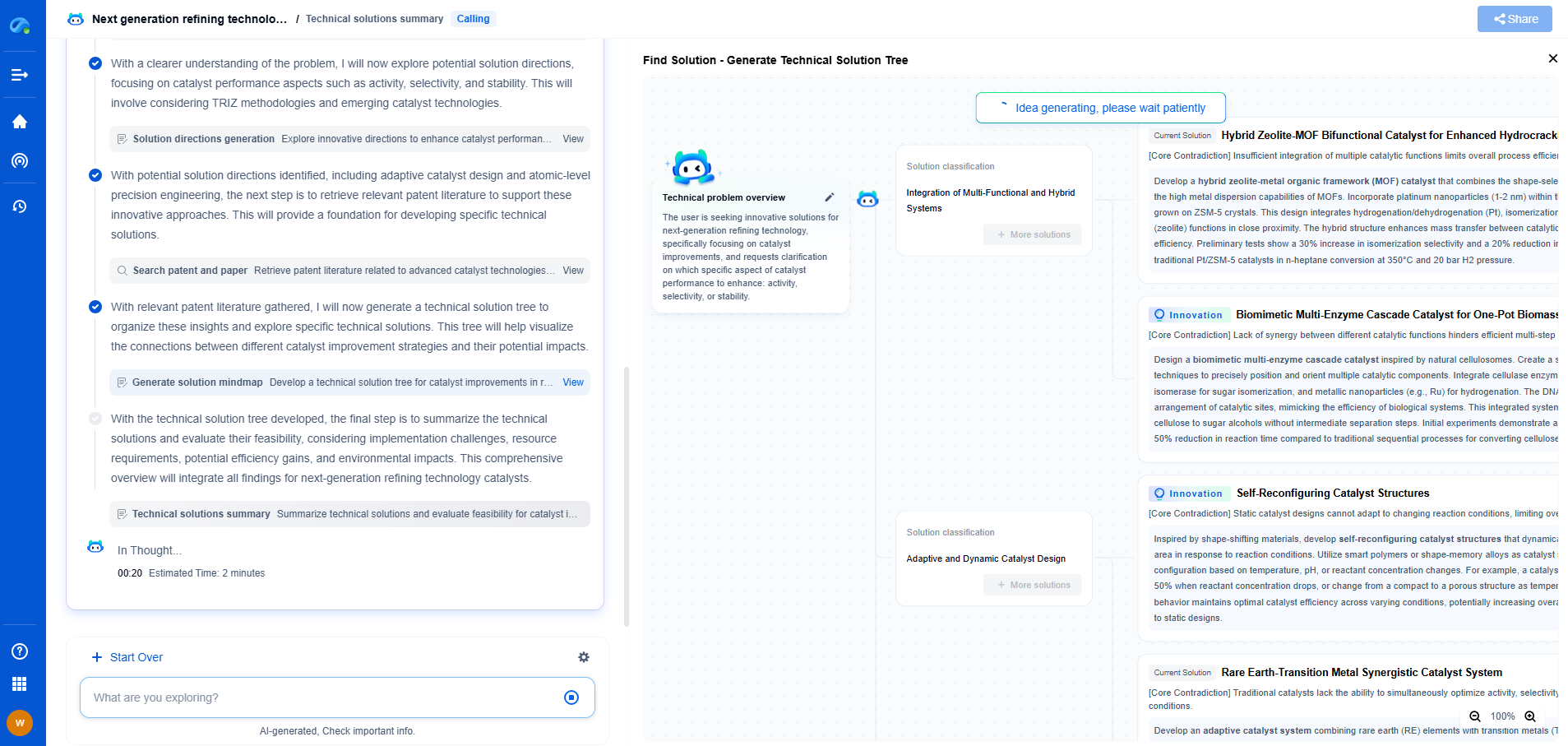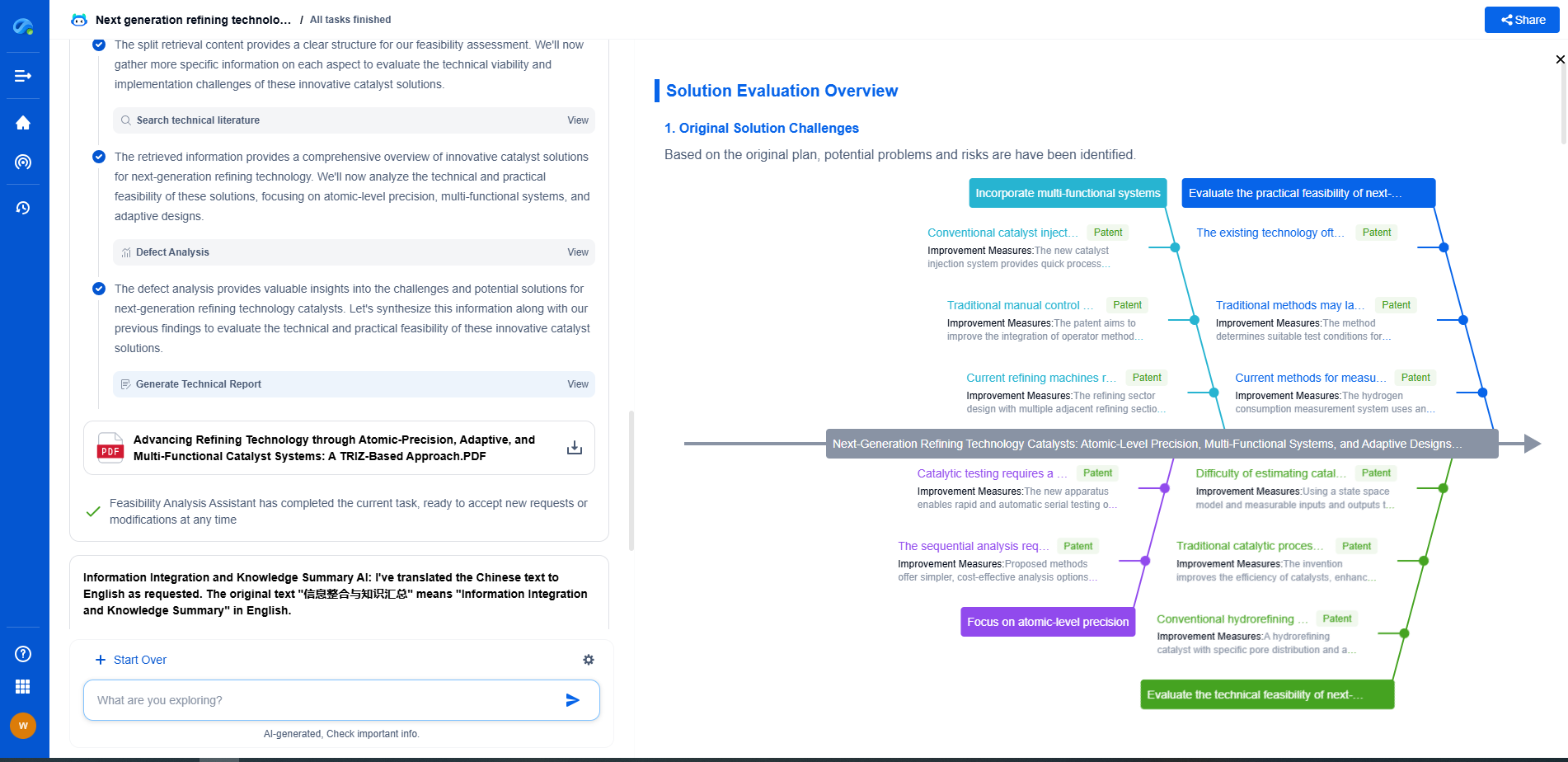What is a Distributed Control System (DCS)?
JUL 2, 2025 |
A Distributed Control System (DCS) is a sophisticated automation control system used to monitor and control processes across a wide array of industries. Unlike traditional systems which rely on centralized control, a DCS distributes control elements throughout the system. This decentralized approach enhances reliability, flexibility, and efficiency, making DCS a preferred choice for complex process management tasks.
The Architecture of a DCS
A DCS is typically comprised of several key components: sensors, controllers, operator interfaces, and data networks. Each component plays a critical role in ensuring precise control and monitoring of industrial processes. The architecture is designed to enable these components to communicate seamlessly with one another, thereby distributing control functions across the system rather than concentrating them in a single location. This decentralization allows for more efficient processing and quicker response times to changes in the process environment.
Key Features of DCS
- **Scalability**: One of the standout features of DCS is its scalability. Whether managing a small operation or a large industrial plant, DCS can be tailored to fit the specific needs of the process. This flexibility allows industries to expand their operations without overhauling their existing control systems.
- **High Reliability and Availability**: By distributing control tasks among multiple controllers, a DCS minimizes single points of failure. This redundancy increases the overall reliability and availability of the system, ensuring continuous operation even if one component encounters an issue.
- **Advanced Process Control**: DCS systems offer sophisticated algorithms and control strategies that enable precise management of complex processes. This advanced control capability is essential in industries where precision and accuracy are critical, such as in chemical or pharmaceutical manufacturing.
- **Seamless Integration**: Modern DCS solutions are designed to integrate seamlessly with other business systems, such as ERP and MES. This integration facilitates better coordination across various functions, from production management to logistics and supply chain operations.
Applications of DCS
DCS systems are widely used across various sectors including oil and gas, chemical processing, power generation, water treatment, and food and beverage industries. In the oil and gas sector, for example, DCS is employed to manage the intricate processes involved in extraction, refining, and distribution. In the power generation industry, DCS is essential for managing the complex dynamics of electricity production and distribution, ensuring efficiency and safety.
Benefits of Implementing DCS
Implementing a DCS offers numerous benefits that contribute to improved operational performance and productivity:
- **Enhanced Process Efficiency**: By providing precise control over processes, DCS helps in optimizing production, reducing waste, and minimizing energy consumption.
- **Improved Safety**: With real-time monitoring and control, DCS systems enhance safety by quickly detecting and responding to potential hazards, thus protecting personnel and equipment.
- **Cost Savings**: Although the initial investment in a DCS can be significant, the long-term cost savings through improved efficiency, reduced downtime, and minimized maintenance expenses make it a cost-effective solution.
Challenges and Considerations
Despite the numerous advantages, implementing a DCS is not without its challenges. Organizations need to consider factors such as the complexity of integration with existing systems, the need for skilled personnel to manage and maintain the system, and the potential for cybersecurity threats that could compromise system integrity. Proper planning, robust cybersecurity measures, and ongoing training are essential to mitigate these challenges.
Conclusion
A Distributed Control System represents a powerful tool for industries looking to optimize their processes and enhance operational efficiency. By distributing control functions across the system, DCS offers unparalleled reliability, scalability, and integration capabilities. As industries continue to evolve, the deployment of advanced DCS solutions will remain a cornerstone of modern process management, driving improvements in safety, efficiency, and productivity.
Ready to Reinvent How You Work on Control Systems?
Designing, analyzing, and optimizing control systems involves complex decision-making, from selecting the right sensor configurations to ensuring robust fault tolerance and interoperability. If you’re spending countless hours digging through documentation, standards, patents, or simulation results — it's time for a smarter way to work.
Patsnap Eureka is your intelligent AI Agent, purpose-built for R&D and IP professionals in high-tech industries. Whether you're developing next-gen motion controllers, debugging signal integrity issues, or navigating complex regulatory and patent landscapes in industrial automation, Eureka helps you cut through technical noise and surface the insights that matter—faster.
👉 Experience Patsnap Eureka today — Power up your Control Systems innovation with AI intelligence built for engineers and IP minds.
- R&D
- Intellectual Property
- Life Sciences
- Materials
- Tech Scout
- Unparalleled Data Quality
- Higher Quality Content
- 60% Fewer Hallucinations
Browse by: Latest US Patents, China's latest patents, Technical Efficacy Thesaurus, Application Domain, Technology Topic, Popular Technical Reports.
© 2025 PatSnap. All rights reserved.Legal|Privacy policy|Modern Slavery Act Transparency Statement|Sitemap|About US| Contact US: help@patsnap.com

